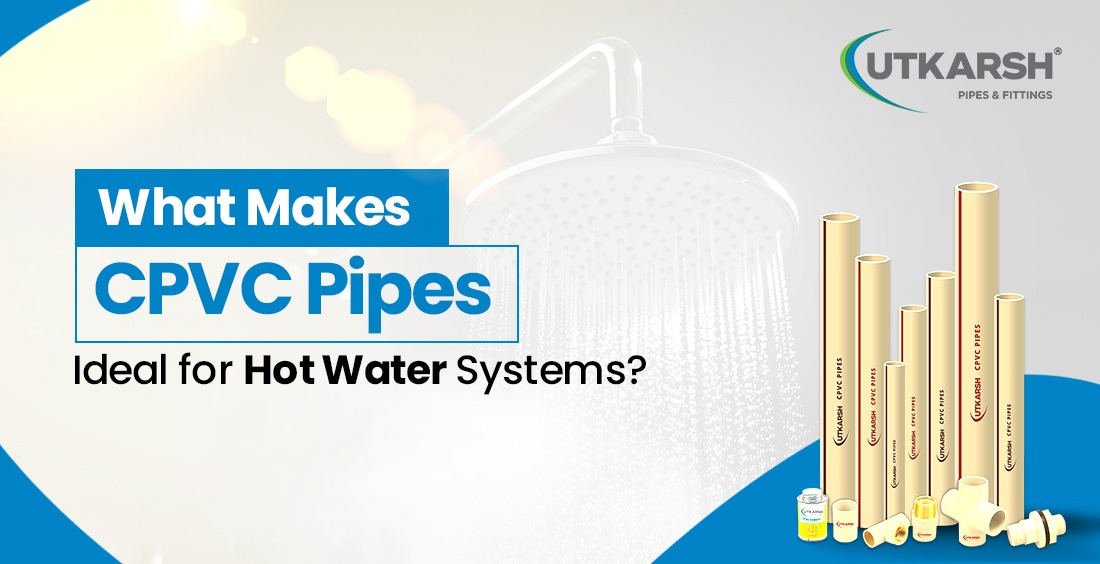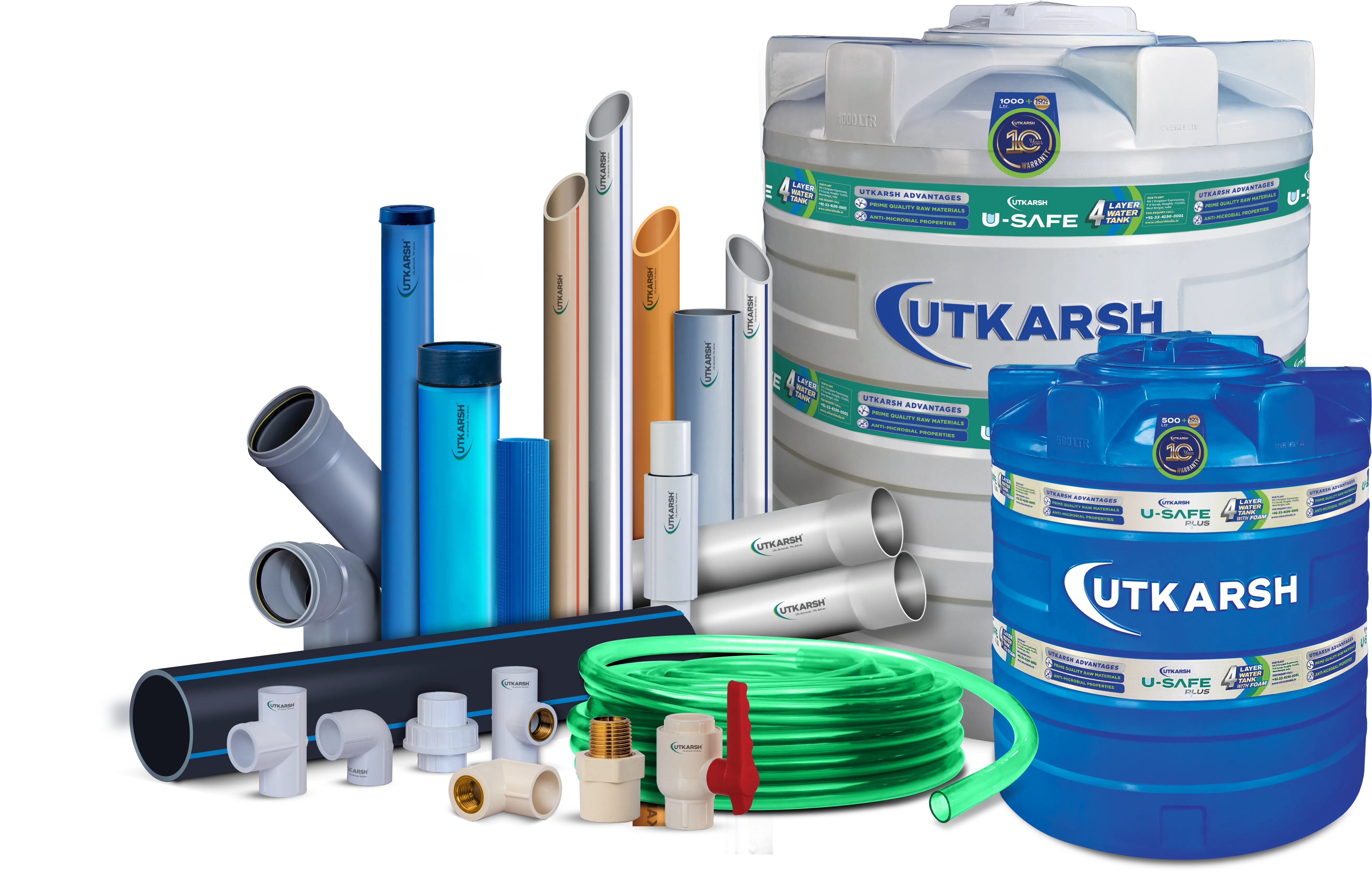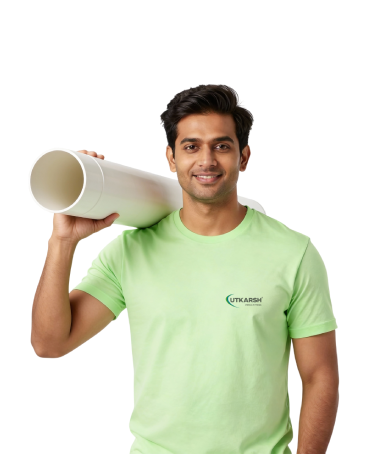What Makes cPVC Pipes Ideal for Hot Water Systems?

When it comes to hot water plumbing, choosing the right piping material is critical. CPVC (Chlorinated Polyvinyl Chloride) pipes are widely preferred for hot water delivery systems due to their superior heat resistance, durability, and cost efficiency.
Unlike conventional materials, CPVC pipes can withstand high temperatures while retaining their structural integrity. They are easy to install, perform reliably under pressure, and offer a long service life—making them suitable for both residential and commercial applications.
In this blog, we explore why CPVC pipes and fittings are the ideal choice for hot water systems.
Exceptional CPVC Pipe Heat Resistance
One of the most notable features of CPVC pipes is their excellent heat resistance. These pipes are designed to handle temperatures of up to 90°C (194°F), making them perfect for hot water plumbing systems.
Even under continuous exposure to high temperatures, CPVC pipes do not soften, deform, or lose strength. This thermal stability ensures consistent performance in geysers, boilers, and centralized hot water systems across homes, hotels, hospitals, and commercial buildings.
Enhanced Strength and Long Lifespan
CPVC pipes maintain their mechanical strength even at elevated temperatures. Unlike metal pipes, they do not corrode, scale, or rust over time.
This resistance to degradation allows CPVC hot water systems to function efficiently for decades with minimal maintenance. Their average service life can extend up to 50 years, offering long-term value and reliability.
Also Read: Benefits of Using cPVC for Residential and Commercial Plumbing Systems
Lightweight Yet Tough
Despite being lightweight, CPVC pipes are extremely strong and pressure-resistant. Their low weight makes transportation and installation easier, reducing labor costs and installation time.
At the same time, they can withstand internal water pressure and high operating temperatures, ensuring consistent performance even in demanding conditions where other materials may fail.
Corrosion Resistance for Hot Water Applications
Heat and water together can accelerate corrosion in metal piping systems. CPVC pipes, however, are completely resistant to corrosion and chemical reactions.
This makes them especially suitable for regions with hard or aggressive water. With CPVC, there is no risk of rust contamination, pipe thinning, or leakage due to oxidation, even in high-temperature environments.
Safe and Eco-Friendly
CPVC pipes do not release toxic substances when exposed to heat, ensuring that the water remains safe for domestic use.
Additionally, CPVC is recyclable and environmentally responsible compared to many traditional materials. The use of CPVC pipes and fittings contributes to sustainable plumbing systems without compromising on performance or safety.
Cost-Effective Solution
Compared to copper or stainless steel, CPVC pipes are significantly more affordable while delivering comparable performance.
Their long lifespan, low maintenance needs, and ease of installation make them a cost-efficient investment for both residential and commercial hot water systems.
CPVC Pipes & Fittings by Utkarsh Pipes & Fittings
At Utkarsh Pipes & Fittings, we manufacture world-class CPVC pipes and fittings designed to meet global quality standards.
As one of the trusted CPVC pipe manufacturers in India and among reliable CPVC pipe fittings manufacturers, Utkarsh offers products engineered for durability, safety, and thermal performance.
Our CPVC pipes and fittings:
Support service temperatures between 82°C and 90°C
Comply with strict water safety regulations
Are suitable for both hot and cold water applications
Deliver consistent performance across residential, commercial, and industrial plumbing systems
With advanced manufacturing practices and stringent quality control, Utkarsh ensures dependable plumbing solutions for modern infrastructure needs.
Conclusion: The Smart Choice for Hot Water Systems
CPVC pipes are the preferred choice for hot water systems due to their exceptional heat resistance, corrosion protection, durability, and affordability. Their ability to perform reliably under extreme temperature and pressure conditions makes them ideal for long-term use.
Whether you are designing a residential plumbing network or executing a large commercial project, choosing high-quality CPVC pipes and fittings from experienced manufacturers ensures efficiency, safety, and peace of mind for years to come.
FAQs
1. What are the main advantages of CPVC pipes?
CPVC pipes are lightweight, heat-resistant, corrosion-proof, easy to install using solvent cement, and highly durable, making them ideal for hot and cold water plumbing systems.
2. How long do CPVC pipes last?
With proper installation and normal operating conditions, CPVC pipes can last up to 50 years or more.
3. What is the full form of CPVC?
CPVC stands for Chlorinated Polyvinyl Chloride, a modified version of PVC designed to withstand higher temperatures.












